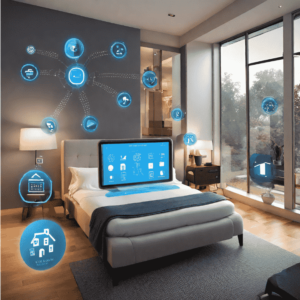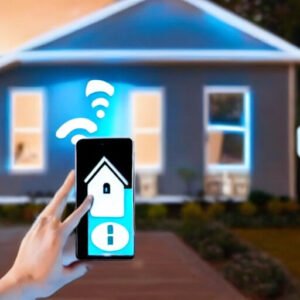Introduction:
In the ethical landscape of smart home technology, considerations go beyond convenience. Privacy, security, and accessibility shape responsible innovation in the era of connected living.In the ethical landscape of smart home technology, considerations go beyond convenience. Privacy, security, and accessibility shape responsible innovation in the era of connected living. As smart home technology continues to permeate our living spaces, it brings forth a myriad of ethical considerations that warrant careful examination. From privacy concerns to data security and societal implications, the ethical implications of smart home technology are profound and far-reaching.
1. Privacy and Data Security:
One of the most significant ethical concerns surrounding smart home technology is the issue of privacy and data security. Smart devices collect vast amounts of personal data, ranging from daily routines and habits to sensitive information such as financial transactions and health records. Ensuring robust encryption, secure storage, and transparent data policies is essential to safeguarding user privacy and preventing unauthorized access.
2. Surveillance and Intrusion:
The proliferation of smart cameras, microphones, and sensors in smart homes raises concerns about surveillance and intrusion. While these devices offer enhanced security and convenience, they also have the potential for misuse and abuse. Striking a balance between surveillance for safety and respecting individual privacy rights is paramount in ethical smart home design and implementation.
3. Bias and Discrimination:
The algorithms powering smart home technology may inadvertently perpetuate bias and discrimination, particularly in areas such as facial recognition and automated decision-making. Biased algorithms can lead to unfair treatment and exacerbate existing societal inequalities. It is crucial to mitigate bias through inclusive design practices and ongoing algorithmic transparency and accountability.
4. Accessibility and Inclusivity:
Smart home technology should be accessible and inclusive to individuals of all abilities. However, the design and implementation of smart devices may inadvertently exclude certain populations, such as the elderly or people with disabilities, due to complex interfaces or lack of compatibility with assistive technologies. Prioritizing universal design principles ensures that smart home technology benefits everyone equitably.
5. Dependency and Autonomy:
As smart home technology becomes increasingly integrated into our daily lives, there is a risk of over-reliance and loss of autonomy. Dependence on automated systems may diminish critical thinking skills and erode individual agency, raising questions about the balance between convenience and personal empowerment.
Conclusion: Embracing Ethical Design
In navigating the ethical landscape of smart home technology, prioritizing privacy, security, and accessibility is paramount. By addressing these concerns, stakeholders can foster responsible innovation and ensure that the benefits of connected living are ethically grounded. In navigating the ethical landscape of smart home technology, prioritizing privacy, security, and accessibility is paramount. By addressing these concerns, stakeholders can foster responsible innovation and ensure that the benefits of connected living are ethically grounded. The ethical considerations surrounding smart home technology are multifaceted and nuanced, requiring a holistic approach that prioritizes user privacy, security, inclusivity, and autonomy. By embracing ethical design principles, stakeholders can harness the transformative potential of smart home technology while upholding fundamental values of respect, transparency, and social responsibility.








